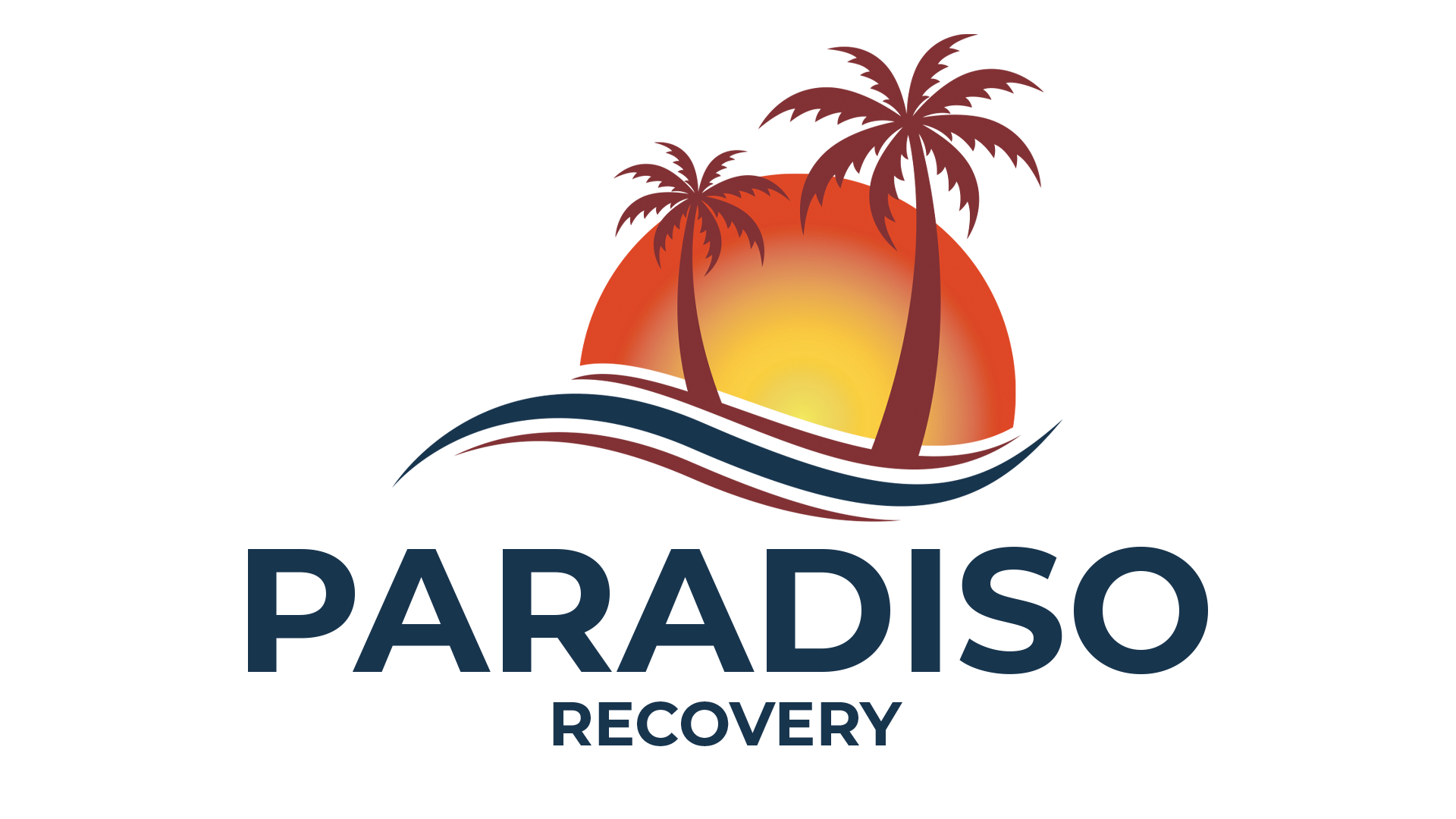Individual Therapy for Addiction in Ventura County, CA
Individual Therapy for Addiction in Ventura County, CA
At Paradiso Recovery, we believe that healing from addiction requires a deeply personal approach. Individual therapy is a cornerstone of our treatment programs, offering a confidential, one-on-one space where clients can explore the root causes of their addiction, develop coping strategies, and build a sustainable path to recovery.

Unlike group therapy, individual sessions are tailored to each person’s unique needs. Whether they’re processing trauma, managing co-occurring mental health disorders, or learning relapse prevention skills, we’re here to help. Our team uses evidence-based techniques to guide clients toward lasting change in a supportive, judgment-free environment.
What is Individual Therapy?
Individual therapy, also known as psychotherapy or counseling, is a structured process where a client works privately with a licensed therapist to address drug addiction, mental health concerns, and personal challenges. At Paradiso Recovery, these sessions are customized to fit each person’s history, emotional needs, and recovery goals.
Unlike group therapy, which focuses on shared experiences, individual therapy allows for:
- Personalized attention: Sessions move at the client’s pace, whether they need time to process trauma or are ready to tackle behavioral changes.
- A safe, confidential space: Clients can openly discuss sensitive topics without fear of judgment.
- Targeted healing: Therapists help to unpack underlying issues like trauma, anxiety, or fears that fuel addiction.
- Flexible techniques: Treatment may include talk therapy, EMDR treatment, mindfulness, or experiential methods depending on the individual’s needs.
Individual therapy is not just about helping to stop substance use. It centers on understanding why addiction took hold and building the skills needed for long-term recovery.
Benefits of Individual Therapy for Addiction
One-on-one therapy can be one of the most effective tools in addiction treatment. Reasons for this include:
Personalized Treatment
Every recovery journey is different. Some clients need to process deep-seated trauma before addressing addiction, while others may focus first on relapse prevention. Individual therapy adapts to the client’s readiness, ensuring they never feel rushed or overwhelmed.
Stronger Accountability and Progress Tracking
Regular sessions create a structured environment where clients can:
- Set and review achievable goals
- Discuss setbacks without shame
- Celebrate milestones in real time
Therapists provide honest feedback, helping clients stay committed to their recovery.
Deeper Exploration of Underlying Issues
Addiction rarely exists in isolation. Individual therapy helps uncover:
- Past trauma or PTSD
- Co-occurring disorders (anxiety, depression, bipolar disorder)
- Unhealthy relationship dynamics
- Stressors that trigger substance use
By addressing root causes of addiction, clients develop healthier coping mechanisms.
Contact us right now for a free, confidential insurance verification
Free Insurance Verification
Types of Therapy Used in Individual Addiction Treatment
At Paradiso Recovery, individual therapy is far from one-size-fits-all. Our licensed clinicians are trained in a variety of evidence-based therapeutic modalities, which are selected based on each client’s background, mental health needs, and stage in recovery.
Cognitive Behavioral Therapy (CBT)
Cognitive Behavioral Therapy (CBT) is a widely used approach that helps clients identify and challenge distorted thinking patterns that may drive substance use. In individual sessions, therapists work directly with clients to recognize these automatic negative thoughts, such as feelings of hopelessness, guilt, or fear of failure. They can then be replaced or reframed into healthier, more constructive beliefs.
For example, if a client tends to use substances after experiencing interpersonal conflict, their therapist might help them identify their automatic responses or implement thought-stopping techniques. CBT is especially beneficial for individuals struggling with impulsive behaviors or persistent self-defeating thoughts and is often considered a foundational therapy in addiction treatment.
Dialectical Behavior Therapy (DBT)
In an individual therapy setting, Dialectical Behavior Therapy (DBT) helps teach individuals to develop practical tools to manage overwhelming emotions and improve their relationships. Therapists help clients build skills in four core areas: emotional regulation, mindfulness, interpersonal effectiveness, and distress tolerance. Each session is tailored to the client’s unique struggles.
For instance, if a client experiences severe mood swings or has a history of self-harm, the therapist may focus heavily on distress tolerance strategies such as grounding exercises or distraction techniques to prevent relapse in moments of crisis. Mindfulness practices are integrated into sessions to help clients remain present, reduce anxiety, and develop awareness of emotional triggers. DBT is particularly effective for those with borderline personality disorder or co-occurring mental health conditions that intensify emotional dysregulation.
Eye Movement Desensitization and Reprocessing (EMDR)
EMDR is a trauma-focused therapy that enables clients to process and resolve painful memories that may be fueling substance use. During individual sessions, the therapist guides the client through a structured series of phases, including the use of bilateral stimulation (such as side-to-side eye movements or tapping). This technique allows the brain to reprocess traumatic memories in a way that reduces their emotional charge.
Rather than merely recalling a traumatic event, the client is better able to view it from a new, less distressing perspective. EMDR can be very effective for individuals with a history of trauma or PTSD, as it helps to eliminate the emotional barriers that often hinder recovery. In a one-on-one setting, EMDR provides the privacy and control necessary for sensitive trauma work.
Experiential Therapy
Experiential therapy involves non-traditional, activity-based therapeutic experiences that allow clients to access and express emotions that may be difficult to verbalize. In individual therapy sessions at Paradiso Recovery, this might include guided art exercises, music engagement, role-playing, or nature-based therapy like hiking or equine interaction. The therapist facilitates each experience in a way that encourages emotional insight and catharsis.
For clients who struggle to open up in standard talk therapy or who have experienced emotional disconnection, experiential therapy can unlock new pathways for healing. These sessions can help clients rebuild trust, access repressed feelings, and strengthen their sense of identity in recovery.
Yoga and Mindfulness Therapy
Yoga and mindfulness-based therapies are holistic modalities that can help individuals reconnect with their bodies, calm the nervous system, and stay centered in the present moment. In an individual setting, therapists guide clients through gentle yoga postures, breathwork, and meditation practices tailored to their physical and emotional needs. These sessions are often used to manage anxiety, reduce stress, and cultivate emotional regulation.
For clients dealing with cravings or post-acute withdrawal symptoms, mindfulness therapy can provide powerful tools to observe discomfort without immediately reacting to it. This approach is particularly well-suited for those seeking a spiritual or whole-body complement to more clinical therapies.
How Individual Therapy Works at Paradiso Recovery
Our approach is structured yet flexible, ensuring clients receive the right level of care at every stage. Learn more about our intake process for admissions and reach out to our team if you have questions.
Step 1: Comprehensive Assessment
Before therapy begins, our clinicians conduct a thorough evaluation. This may include:
- Substance use history
- Mental health screening
- Trauma background
- Personal goals for recovery
Step 2: Customized Treatment Plan
Based on the assessment, therapists design a roadmap that may include:
- Weekly one-on-one therapy sessions
- A blend of CBT, DBT, EMDR, or experiential therapy
- Measurable recovery goals
Step 3: Ongoing Sessions and Skill-Building
Clients typically meet with their therapist to:
- Process emotions in a safe setting
- Practice coping strategies
- Complete therapeutic “homework” (journaling, mindfulness exercises)
Step 4: Progress Monitoring & Adjustments
Therapists may regularly assess:
- Emotional and behavioral progress
- Relapse triggers
- Effectiveness of current techniques
Treatment plans may be adjusted as needed.
Step 5: Integration with Holistic Care
Individual therapy can work alongside:
- Group therapy
- Family counseling
- Medical detox (if necessary)
- Fitness and nutrition programs
Step 6: Aftercare and Relapse Prevention
Before discharge, clients may receive:
- A personalized aftercare plan
- Outpatient therapy referrals
- Community support resources
Receive Comprehensive Addiction Treatment at Paradiso Recovery in Ventura County
At Paradiso Recovery, we provide a full continuum of care to support individuals at every stage of their recovery journey. Located in the serene surroundings of Ventura County, our evidence-based programs are designed to address addiction and mental health challenges with personalized, compassionate care.
Medical Detoxification
Detox is often the first step in recovery, and our medically supervised detox program ensures a safe, comfortable withdrawal process. Under the care of experienced professionals, clients receive 24/7 monitoring, medication-assisted treatment (if needed), and emotional support to manage withdrawal symptoms. Our goal is to stabilize clients physically and mentally before transitioning to the next phase of treatment.
Residential Treatment
Our residential addiction treatment program offers a structured, immersive healing environment where clients can focus entirely on recovery. With a blend of individual therapy, group sessions, holistic therapies, and wellness activities, we address the root causes of addiction while teaching essential coping skills. Living on-site in our peaceful Camarillo facility allows clients to disconnect from everyday triggers and build a strong foundation for sobriety before returning home.
Dual Diagnosis Treatment
Many individuals struggling with addiction also face co-occurring mental health disorders like depression, anxiety, or PTSD. Our dual diagnosis program integrates addiction treatment with psychiatric care, ensuring both conditions are treated simultaneously. Through therapy, medication management (when appropriate), and tailored interventions, we help clients achieve lasting mental wellness alongside sobriety.
If you or a loved one is struggling with addiction, individual therapy at Paradiso Recovery can provide the personalized care needed for lasting change. Contact us today for a confidential consultation.
